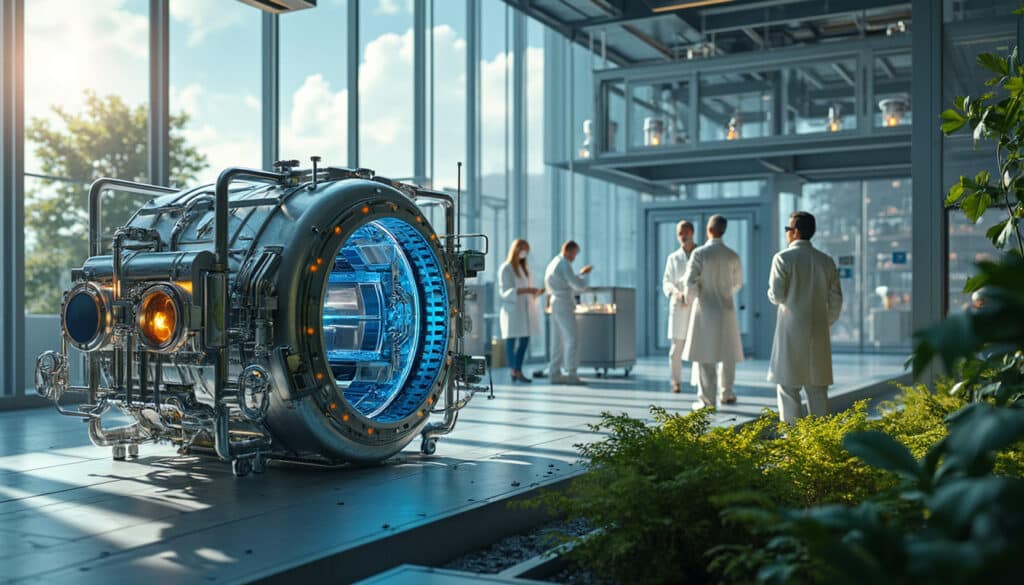At the heart of the energy revolution, Rolls-Royce’s initiative to develop small modular reactors (SMRs) emerges as an innovative solution. This approach aims to overcome the challenges of building traditional nuclear power plants by focusing on smaller, modular units. With a modular approach, these reactors could be easily assembled on-site, thus reducing costs and construction time. This bold strategy could rethink the energy landscape, providing a competitive alternative within the energy mix.
In the nuclear energy sector, Rolls-Royce bets on the development of small modular reactors (SMRs) as a promising solution. Faced with the issues associated with large-scale nuclear projects, these smaller and modular reactors offer the potential for faster and less costly construction. The project aims to use factory-prefabricated components, facilitating on-site assembly. The United Kingdom and Czechia are among the first interested parties in this innovative technology. However, despite the numerous challenges they face, SMRs are seen as a response to the growing needs for clean energy, particularly those related to the rise of artificial intelligence.

rolls-royce and the advances of small modular nuclear reactors
Rolls-Royce is positioning itself at the heart of nuclear innovation with its small modular reactors (SMRs). Faced with gigantic and costly centralized energy systems, these SMRs represent a viable and promising alternative. By building reactors in modules, ready to be assembled on-site, Rolls-Royce controls costs while facilitating their deployment. The challenge is significant, but with an energy market in transition, the British company could change the game of global nuclear energy.
strategic partnerships and international developments
The expansion of SMRs is not limited to British territory. A significant partnership with the Czech company CEZ clearly shows Rolls-Royce’s commitment to establishing itself internationally. In collaboration with CEZ, more small reactors will be developed, thus consolidating bilateral energy relations. Czechia has shown its support by approving these developments, thereby demonstrating the confidence placed in this technology. Other collaborations, notably with the Polish government, indicate a marked interest in this agile and innovative energy across Europe.
In North America as well, discussions around SMRs are multiplying. Tech giants like Google see these reactors as a potential answer to their growing energy needs. The current economic and political climate pushes nations to diversify their energy sources, and Rolls-Royce’s small modular nuclear reactors are positioned as a sustainable and scalable solution for the future.
impact in terms of sustainability and economic competitiveness
In addition to the technological impact, these nuclear innovations from Rolls-Royce rely on increased economic competitiveness. Estimates suggest that the energy generated by these SMRs could be established at competitive costs compared to wind energy, representing a considerable advantage over traditional renewable energy sources. It is pertinent to note that the modular integration of these reactors allows for both streamlining production costs and simplifying the implementation process, which can significantly reduce construction timelines. This approach could very well be the key to meeting the growing energy demand while respecting global climate challenges.
Articles similaires
Thank you!
We will contact you soon.














